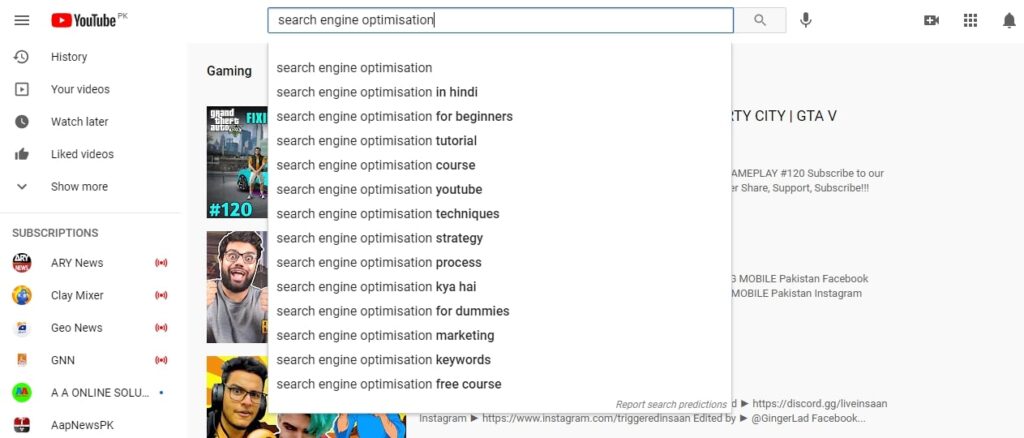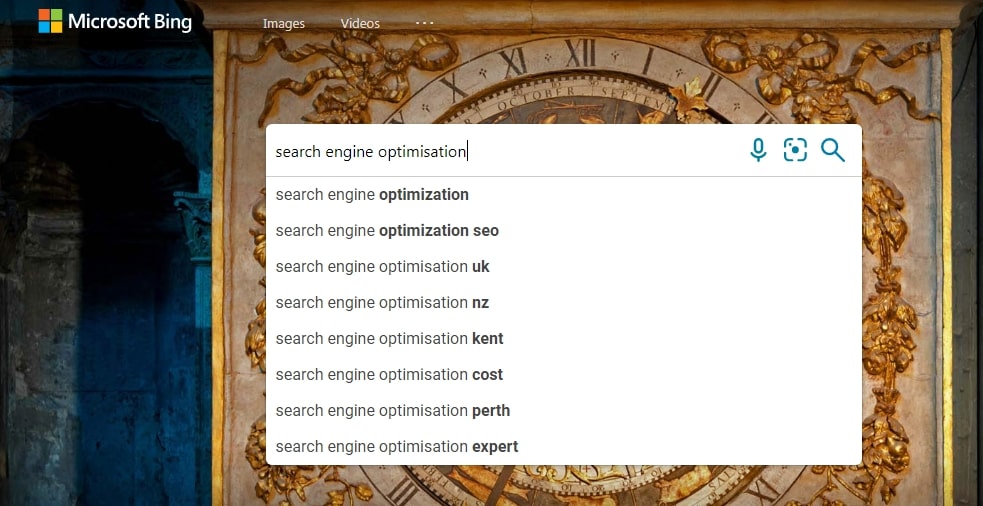How do I find SEO keywords?

Google keeps us alert with its ever-changing algorithm, but one thing stays constant for inbound marketers looking to optimise their webpages for search: keyword research.
Every online search begins with keywords. Keywords are the search terms or search queries used by internet users to search for products and services.
To provide the most beneficial results for every online search, Google matches the keyword search to the best website results for the user’s needs. At the top of the Google search results page, is the websites that rank highest for the search keywords because they are most likely to provide the best solution for what the user is looking for.
It’s essential to keep in mind that targeting more keywords is not always better than targeting less.
For example, a small computer repair business may not have the budget to rank for all 10 different services they offer or appear as number one for “computer repairs”.
Still, it could achieve rankings and probably receive more business by focusing on local customers, e.g. “computer repairs Auckland”.
This is where the right keywords can truly impact business results.
What is Keyword Research?
Keyword research is the method of searching and analysing terms or phrases that people enter into search engines for marketing purpose.
It is a significant SEO task that includes knowing popular words and phrases Internet users enter into search engines.
When you learn what people search for, you can focus your content marketing strategy around those topics.
Researching keywords helps SEO specialists develop a solid understanding of how high the demand is for specific keywords.
Keywords are the starting point of SEO. If you are writing about something without putting keywords that people search for, you won’t get much traffic—even if you have a nice looking website design.
With keyword research, it offers valuable insight into the questions (keywords) that your target audience is actually typing in the search bar. The insight you will have can help you create a content strategy relevant to your audience’s queries.
With this in mind, let’s look at how you can find the relevant keywords for your product/service offerings, and how to create the optimal content that satisfies your target audience and Google.
How to find Keywords for SEO strategy?
We’ll lay out a keyword research strategy you can follow to help you develop a list of phrases you should be targeting. In this way, you’ll be able to build and produce strong keyword tactics that help you get ranked for the search phrases or terms you actually be concerned about.
Now it’s time to get into the essentials of keyword research. We’ll show you some proven tactics that you can use to develop lots of keyword ideas.
You can get keywords in “Searches Related To” section
One of the easiest ways to discover keywords is to check out the “Searches Related to” part at the end of Google’s search results.
For instance, suppose one of your topics was “SEO consultant.”
If you type SEO consultant in the Google search box and scroll to the last of the page. You’ll see a list of seven keywords. This strategy will give you a new list of related keywords.
So, these are keyword ideas that come right from Google. So you don’t need to take a shot in the dark whether they’re popular or not. Google is exactly telling you that countless people have been searching for these keywords.”
You can also find Keywords on Reddit
You can also use Reddit to find keywords because your target audience may hang out on Reddit.
Thus, Reddit can be a source of keyword ideas for you. Sounds quite peculiar right? Here’s how it works.
Let’s suppose that you operate a website that sells honey.
You go on Reddit, search for a broad topic that your target audience might be interested in or something honey related, and see which subreddits show up. Go through popular subreddits to see what everyone is talking about and commenting, and look for words or phrases that could potentially be a keyword.
In the example below, someone posted about “YSK: Honey doesn’t expire.” This could be the topic of your new blog on “How long does honey last?”.
You can also use “Keyworddit“, a free SEO tool that scans Reddit for words and phrases that visitors use. It will help you get the relevant keywords for your business.
Google and YouTube Suggest
We have another trick for you to find the perfect keywords. So, you’ve got the keywords; now, all you need to do is to type each of them into Google. Then Google will automatically suggest popular keywords.
Like this:
Similarly, you can also find keyword suggestions on YouTube and Bing.
YouTube:

Bing:

Google Keyword Planner
Google’s Keyword Planner is a free tool that provides you with search volume and competition feedback for various keywords. All you need to do is to click “Switch to expert” mode and get started.
In the image above you can see the insights you get when you type “search engine optimisation”, including the search volume, the amount of competition, and how much money advertisers bid for the keywords.
Furthermore, you can also check out Google’s other free tools like Google Trends, Search Console, and Google Analytics when developing your SEO strategy.
Understanding long-tail keywords
Seed keywords are usually shorter search phrases related to your brand’s main theme or a product/service. Long-tail keywords, however, are more detailed and often related to your brand’s smaller buckets of sub-topics. Long-tail keywords usually match your target audience’s intent more as compared to seed keywords.
For example, if your website posts content about SEO services, using long-tail keywords like “What is the best SEO services in Auckland” will draw a more relevant audience than the seed keyword “SEO.” Hence, they promise a higher conversion rate.
Find out about your competitor’s keywords
Performing keyword research on search engines about your product alone is not adequate. You should also be aware of what your competitors are doing.
Knowing the competitiveness of different keywords will also enable you to distinguish search terms that might be too challenging to rank.
So it’s very important to find keywords your competitors use to rank.
You can identify your competitive keyword through SEM Rush which is a powerful tool to find keywords quickly and easily. You can search by typing a keyword or URL. It also enables you to filter results by geographical area. This tool helps you to check domain analytics data across your site.
Doing a competitors keyword research can be a tiresome and time-consuming job. But it pays you off abundantly in the long run.
How to Choose Keywords for Your Website
Once you have an idea of the keywords you need to rank for, it’s time to filter your list based on your strategy.
While finding keywords, you need to keep in mind the following:
- Relevance
- Volume
Relevance
In order for your website to appear in search results and get clicks, you need to create compelling content that uses relevant keywords. In other words, your content will only rank for a keyword if it is relevant to users’ needs.
Additionally, your content should follow high-quality parameters because Google will only rank your content higher if it provides more value than other content that exists on the web.
Volume
You can reach the first page of Google for a particular keyword, but it will not result in traffic to your site if no one ever searches for it. It is kind of setting up a shop where no one comes. For that, you need to know about Volume. It is measured by MSV (monthly search volume). It means the number of times the keyword phrase or term is used per month across all visitors.
Take outs
Search engine optimisation helps websites rank for the keywords that pertain to their business. As you successfully target the right keywords, your rankings will improve, leading to greater visibility, more traffic leads, and sales.
Not all keywords are created equal in terms of how often they are searched or how easy it will be to rank them. The more common and competitive the keyword phrase, the more complex and costly it will be for top ranking.
Additionally, Google understands how specific keywords or search queries relate to each other. Hence, as you rank better for the one, you’ll likely rank better for most keywords within that related group.


Comments are closed.